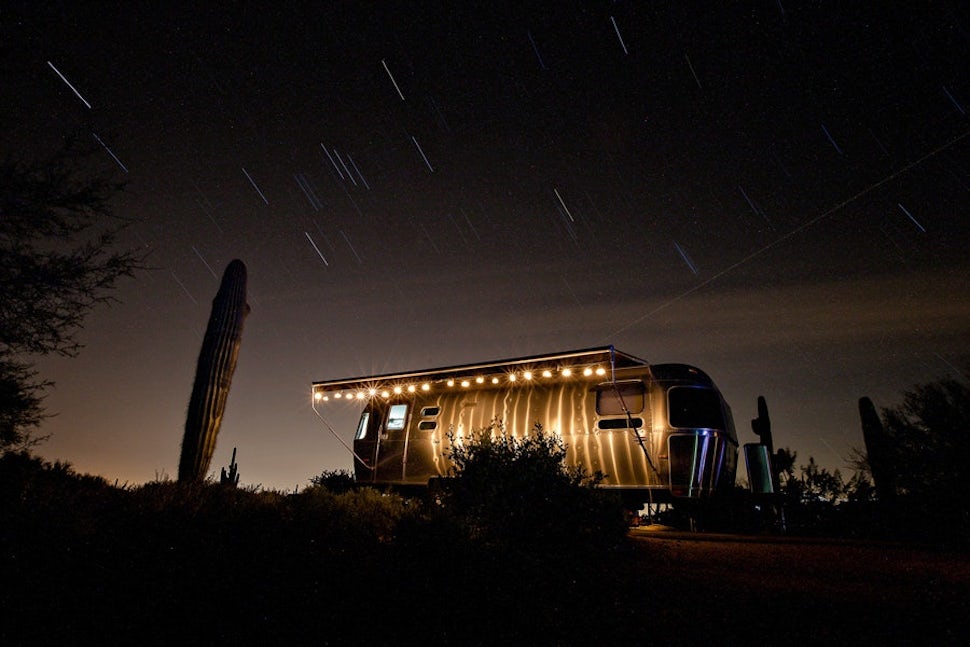5 Reasons Why You Should Live in an RV During Your 20's
RVs are not just for Baby Boomers anymore

Not so long ago, RV's were reserved for the retired Baby Boomer living out the summer in Florida, or the cross-country family road trip that Hollywood loves to portray. Over the last few years there has been a transition though. Millennials are now fueling the growing RV market. Some of these Millennials are not buying RVs for the weekend trip to the state park. We are buying them for full-time, inexpensive living. We are buying them as mobile offices to run our startup businesses. We are buying them to get out and see the country with our home in tow. I, like most others around the age of 25, recently graduated college and started my career. I only had a roommate for maybe a year of the previous 4 years so finding a roommate in a new town where I knew hardly anyone was out of the question. The cheapest single bedroom apartment I could find was almost $1000, nearly double the rent of my two-bedroom house with a fenced in yard in the college town. I had to find a solution, and I did. I spent $5000 dollars on a 26-foot-long 8-foot-wide (that’s only 208 square foot!) travel trailer, and moved into an RV park less than five minutes from work. Everyone told me I would hate it. They said “It will be too small. RV parks are trashy. You won’t have enough room for all your stuff.” They were wrong. I love it!
1. RV living can be incredibly cheap.
You WILL save money living in an RV. Most RV parks are all inclusive. Think about every bill that you have to pay right now. You have an electric bill, water bill, gas bill, cable bill, and internet bill. Those are just five basic utility bills you have to pay every month. Before I moved into an RV, I was paying a total of about $350 a month on utilities on top of my rent. Now I have one simple $450 payment every month that includes all of those bills plus my rent.
2. You realize how much crap you have (and are forced to get rid of it).
When I went from a two bedroom, 850 square foot house down to a 208 square foot travel trailer I had to get rid of a bunch of my stuff. You might not know it, but you have junk hidden all over the place. You have a catch all drawer in the kitchen, a coat closet by the door that you have not opened in a year, and a shed outside where items are lost for forever. When you begin moving into an RV, you have to downsize everything. You do not need two full drawers of freebie t-shirts or eight pairs of jeans. You really do not use most of the stuff you own, so why keep it?
3. You get to spend more time outside.
The limited living space in an RV will force you to be outside and enjoy nature more. If you chose to live near a city that has an abundance of your favorite outdoor activities, you will more than likely be able to live as close as possible to your favorite crag or trailhead. Even if you are not close to your favorite adventure spot, you will not spend much time inside. I can do almost everything that you would typically do in the kitchen and living room of a traditional house outside of my RV. Even when it is raining, I cook and hangout under the awning.
4. You have mobility.
You have the ability to move down the street or across the country at a moment’s notice. No one ever gets his or her dream job right out of college. Living in an RV makes it that much easier to pick up and move across the country for that perfect job. You would not have to worry about getting out of a lease or renting a moving truck. Plus, if you have an annoying neighbor you can just move across the park!
5. You can focus on paying off debt and start saving.
The average college graduate has around $30,000 of student debt when they graduate. You can take the extra money you are saving on housing to pay off debt much faster than it would take if you made the minimum payments every month. Even if you are lucky enough to not have much student debt, you will need to start saving for future large purchases.
Cover photo: Jess Curren
We want to acknowledge and thank the past, present, and future generations of all Native Nations and Indigenous Peoples whose ancestral lands we travel, explore, and play on. Always practice Leave No Trace ethics on your adventures and follow local regulations. Please explore responsibly!
Do you love the outdoors?
Yep, us too. That's why we send you the best local adventures, stories, and expert advice, right to your inbox.








